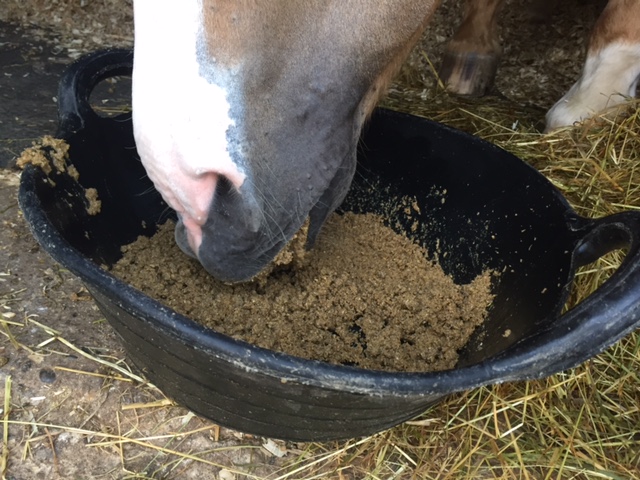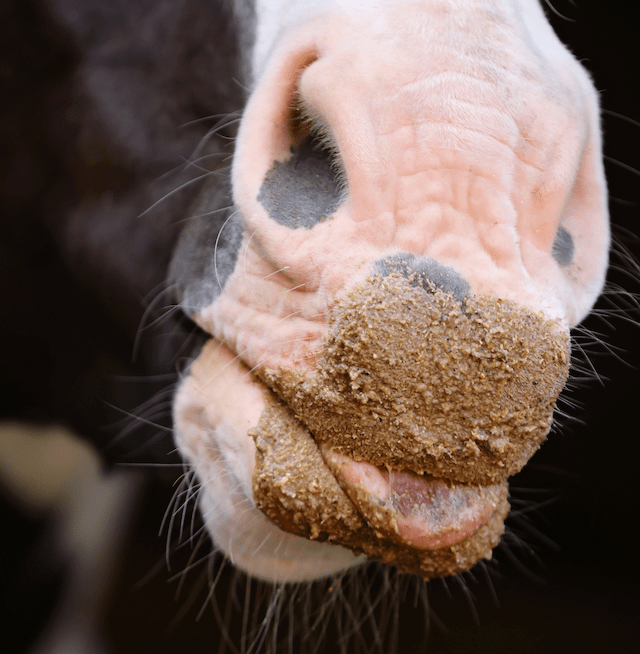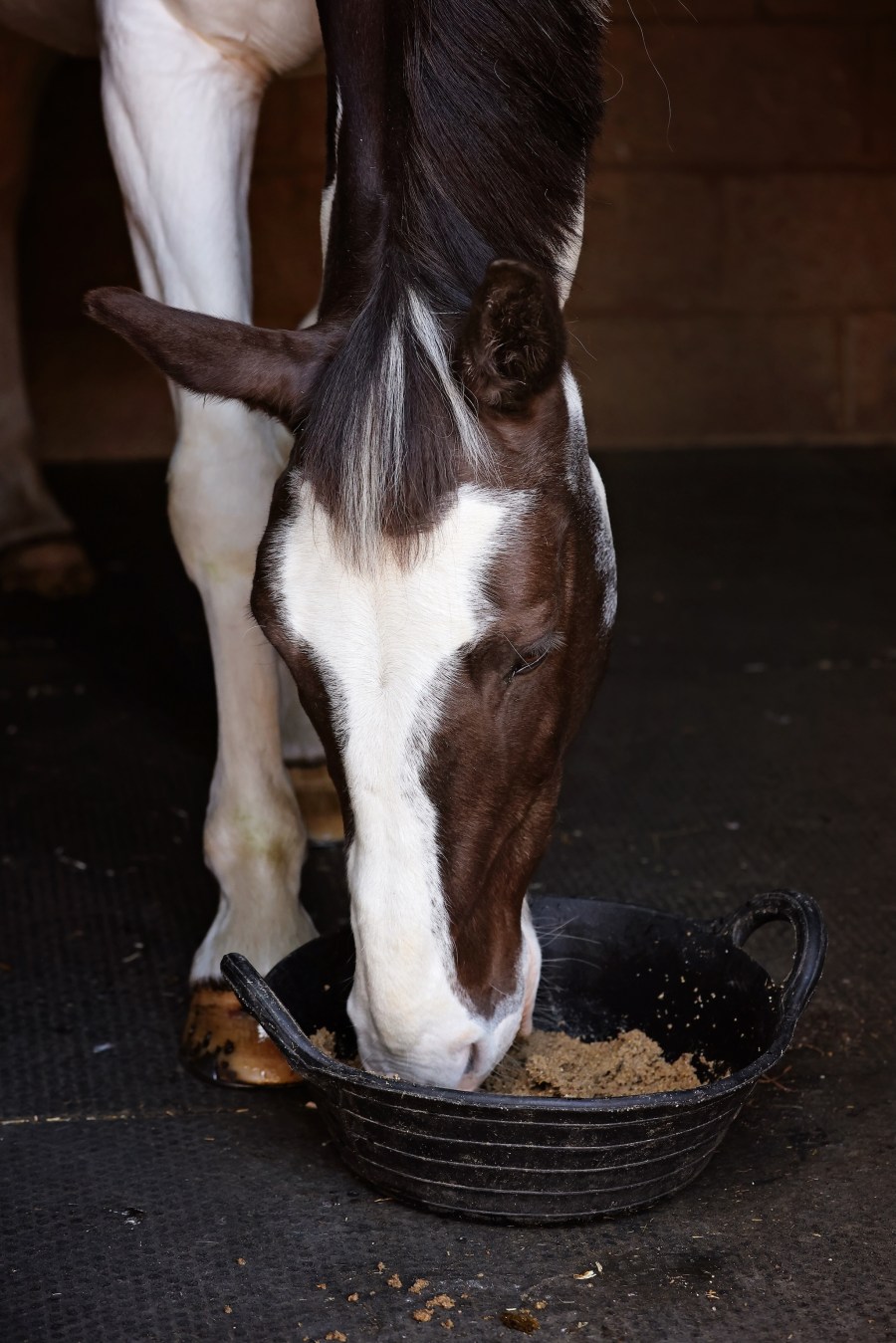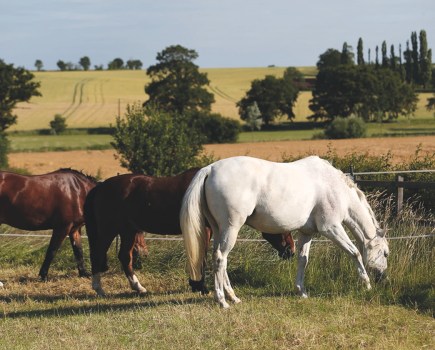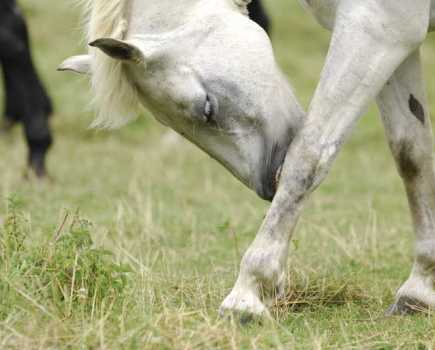Advertisement feature
Mashes are everywhere these days. Whether you’re looking for something to help your horse with hydration, want to provide extra digestive support or to simply offer your horse a comforting winter warmer, they have many useful applications.
With dental health front of mind when it comes to choosing feeds for our senior equines, a mash is perhaps even more useful, so let’s look in more detail into what marvellous mashes have to offer.
Mashes for horses with poor teeth
Their soft, ‘porridge like’ consistency makes mashes ideal for horses with poor teeth. Not only can they make up some or all of the bucket feeds, but some can also be used as forage replacers.
If your horse needs a forage replacer and can no longer manage short-chop fibre, a mash will be essential.
Some seniors can be suspicious of soaked feeds if they’ve never needed them before and prefer their feeds to have something to crunch. Mixing in some high fibre cubes or chaff can be a good way of meeting them in the middle.
Mashes for hydration
Any feed that requires soaking will help increase water intake. When soaked as directed, feeding 3kg of a SPILLERS mash will result in the horse consuming around 5 litres of water.
Feeding a mash may also encourage some horses to drink more water too.
Some seniors with more sensitive teeth can be put off by drinking cold water and so mashes may help them take on more fluids. We always suggest soaking them with warm water for those who are reluctant to drink cold water in winter.
Mashes for a low starch diet
Many (but not all) mashes are high in fibre and low in starch and sugar, providing an alternative to traditional cereal-based feeds which are unsuitable for those prone to clinical conditions such as Cushing’s/PPID.
Like mixes and cubes, mashes can be low, medium and high in energy (calories).
Mashes for tempting fussy eaters
Feeding fussy eaters can be challenging in more ways than one, but adding a small amount of a tasty mash to the horse’s current feed may tempt them to tuck in, especially if it includes added flavours, herbs or aromas.
They can also be a great way of mixing in supplements and can help disguise medications.
Did you know that all SPILLERS mashes contain a delicious apple aroma? While we can’t promise to win over every horse, we’ve had lots of feedback from owners telling us that our mashes have helped to tempt even the fussiest of eaters.
Mashes for ‘bulking out the bucket’
Not all seniors are underweight. In fact, many will still be very good doers.
A cupful of mash will add very few calories to a horse’s diet, especially the low-calorie options. By adding extra water (than what’s suggested on the bag), the mash will provide a larger volume of feed after soaking, helping to bulk out the bucket without compromising a good doer’s waistline.
It is important to note here that you should never use less water than what’s specified on the bag when preparing a mash.
Tips for choosing a mash
Vits and mins
Check whether your chosen mash contains added vitamins and minerals. If it doesn’t, you will need to feed it alongside the recommended amount of an appropriate compound feed, balancer or broad-spectrum vitamin and mineral supplement to provide a balanced diet.
Hay replacers
Not all mashes are suitable for feeding as a hay replacer – and some may only be suitable for feeding as a partial hay replacer. Seek advice from the manufacturer or a nutritional specialist if you’re unsure.
Competition horses
If you are competing the horse, make sure the mash you choose (and any other feeds, supplements and treats) is BETA® NOPS approved.
Molasses
Feeds containing molasses are not automatically high in sugar, but many companies now offer molasses-free options for those who prefer to avoid molasses completely.
Saving time
Quick-soaking mashes are a convenient option. Some take less than five minutes to soak, even if using cold water.
Advice for preparing and feeding a mash
- Always weigh your mash before soaking to make sure you’re feeding the right amount.
- Always follow manufacturer’s instructions regarding soaking time and the amount of water needed.
- Be sure to check the consistency is suitable for your individual horse before feeding. If necessary, increase the amount of water and/or soaking time.
- Soaked feeds can start to ferment quickly in hot weather so avoid soaking in advance as the weather warms up – quick-soaking varieties are ideal in this situation.
- Using warm (not boiling) water can help to speed up the soaking time if needed and may encourage eating, especially in older horses with sensitive teeth.
- If you choose a mash with a longer soaking time, keep it covered and in warm weather, try to leave it in a cool, dark place.
Find out more about SPILLERS’ Mash products
If you would like any nutritional advice for your senior horse or pony, the SPILLERS nutrition team are on hand. You can contact them by phone on 01908 226626 or complete a Care-Line form here and one of the team will be in touch.

